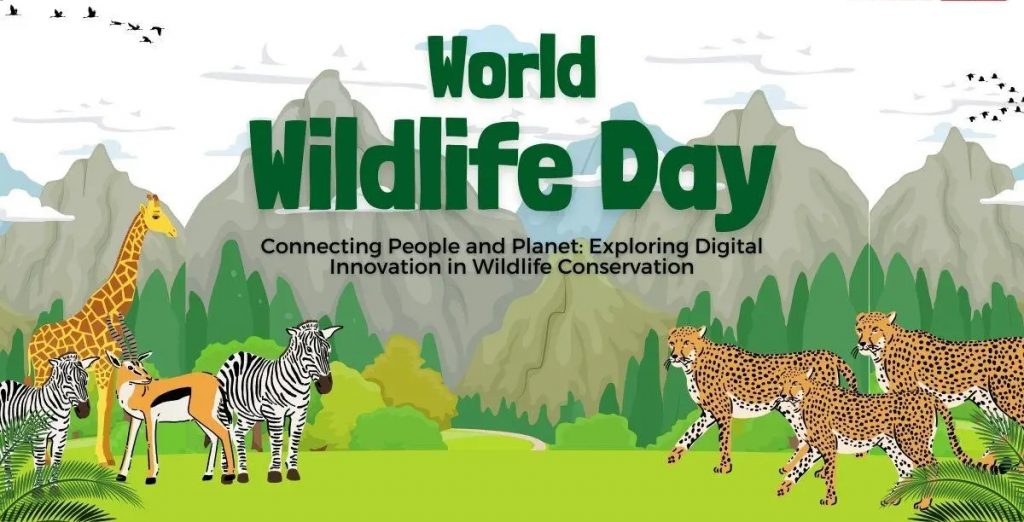 The Nepal Weekly
The Nepal Weekly  March 5, 2024
March 5, 2024
World Wildlife Day is an annual celebration aimed at promoting sustainable practices to preserve biodiversity and raise public awareness about the importance of animal conservation. It highlights the crucial role wildlife plays in maintaining food systems and emphasizes the need for collective efforts to protect and care for animals. In 2024, the focus is on fostering intergenerational exchange and empowering youth through various activities such as art, presentations, and discussions. The day aims to explore opportunities for sustainable digital conservation initiatives, address disparities, and envision inclusive digital connectivity for all.
United Nations World Wildlife Day (WWD) is celebrated every year on 3 March to celebrate wild animals and plants. Every year, we recognize the unique roles and contributions of wildlife to people and the planet.
The WWD2024 theme is Connecting People and Planet: Exploring Digital Innovation in Wildlife Conservation. The day focuses on digital innovation and emphasizes how digital conservation technologies and services can drive wildlife conservation, sustainable and legal wildlife trade, and human-wildlife coexistence.
In Nepal, World Wildlife Fund Nepal and other organisations observed the day with focus on importance of wildlife and theme of the this year.
On 20 December 2013 at the 68th Session of the United Nations General Assembly (UNGA), March 3 was declared United Nations World Wildlife Day (WWD). This day holds significance as the day that the Convention on International Trade in Endangered Species of Wild Fauna and Flora (CITES) was signed in 1973. The UNGA Resolution designated the CITES Secretariat as the facilitator for the global observance of this special day for wildlife on the UN calendar. UN World Wildlife Day has now become the global annual event dedicated to wildlife.
People everywhere rely on wildlife and biodiversity-based resources to meet our needs – from food, to fuel, medicines, housing, and clothing. For us to enjoy the benefits and the beauty that nature brings us and our planet, people have been working together to make sure ecosystems are able to thrive and plant and animal species are able to exist for future generations. So, people need to celebrate wildlife and the important conservation work being done around the world!
World Wildlife Day 2024 is a platform for intergenerational exchange and youth empowerment through art, presentations and conversations on the opportunities ahead for our shared sustainable future in digital wildlife conservation. WWD2024 offers a jumping off point for exploring what digital innovations are available now, what intersectional discrepancies we are facing and how we want our digital connectivity to evolve for all people and planet.
This year, the CITES Secretariat has teamed up with the United Nations Development Programme, WILDLABS, Jackson Wild (host of the World Wildlife Day Showcase) and the International Fund for Animal Welfare (IFAW) (host of the World Wildlife Day Youth Art Contest).
People everywhere rely on wildlife and biodiversity-based resources to meet our needs – from food, to fuel, medicines, housing, and clothing. For us to enjoy the benefits and the beauty that nature brings us and our planet, people have been working together to make sure ecosystems are able to thrive and plant and animal species are able to exist for future generations. So, let’s celebrate wildlife and the important conservation work being done around the world! World Wildlife Day is an opportunity to celebrate the many beautiful and varied forms of wild fauna and flora and to raise awareness of the multitude of benefits that their conservation provides to people. At the same time, the Day reminds us of the urgent need to step up the fight against wildlife crime and human-induced reduction of species, which have wide-ranging economic, environmental and social impacts. Given these various negative effects, Sustainable Development Goal 15 focuses on halting biodiversity.






